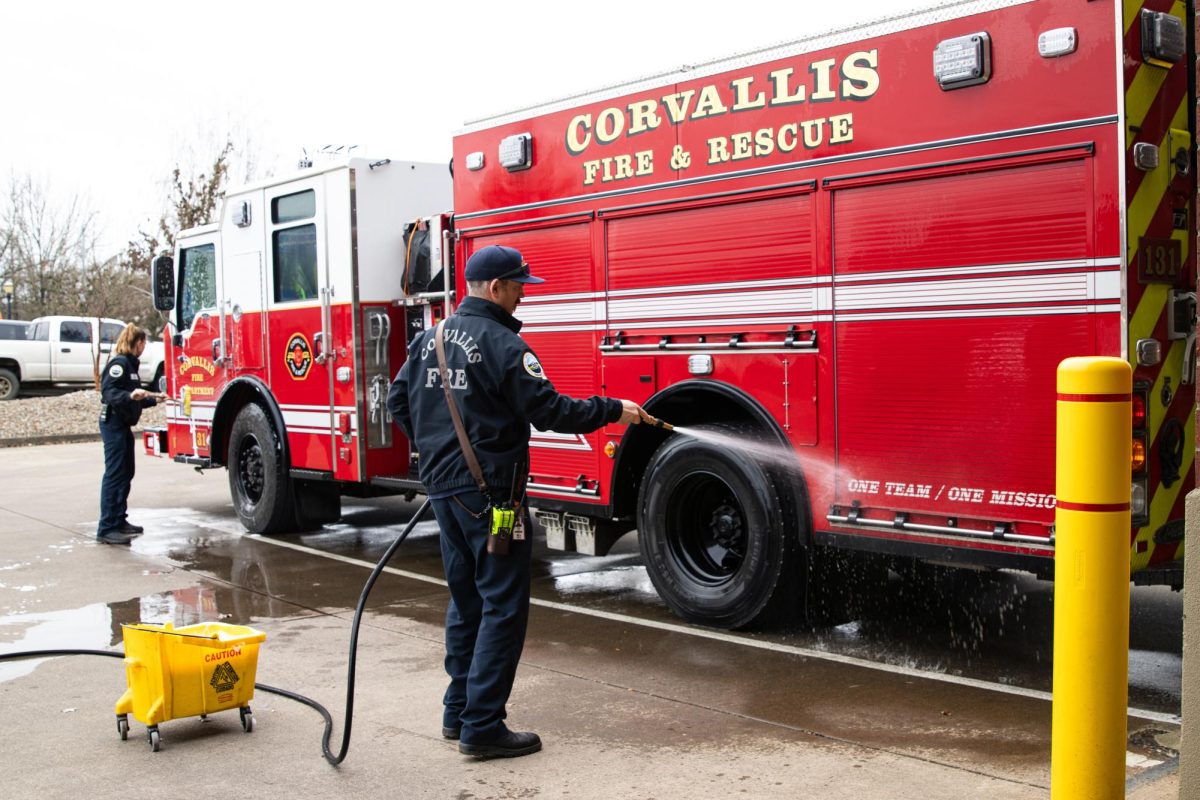Human Sexuality class questions answered
June 3, 2019
The Birds and the Beavs is a weekly column answering your questions on the topics of sexual health, consent, and relationships, written by the Oregon State University Sexual Health Team.
Keep an eye out this week and next for Dead Week Zombie Kits, courtesy of the OSU Sexual Health Team. These kits will be at all of the campus cultural center, SHS locations, and various academic support centers around campus. Each kit contains two condoms, two packets of lube, bubble wrap for stress relief, a tea bag, a chapstick, candy, and tips for a successful finals week.
We recently received a bunch of questions from the Human Sexuality class offered in the College of Public Health and Human Sciences. The Sexual Health Team highly recommends these classes as they give a more in depth overview of sex and healthy sexuality. If you have any questions feel free to submit them via the QR code.
Q: Should we always take a shower before sex or after sex?
Showering before sex is a preference for some especially if it has been a while since their last shower. Some may smell better or feel refreshed after having a shower making both parties feel confident and enjoy each other’s company. If either partner will engage in “rimming”, known as oral-anal sex, showering will clean the anal area of feces, thus reducing the risk of fecal infections. Lastly, some couples shower together before or after sex as part of sexual foreplay!
It’s highly recommended to shower or at least clean up after sex with a washcloth. (LPT: Baby wipes work great if your in a pinch!) This helps gets any of your or your partner’s body fluids that may have gotten you. A common misconception is that showering will protect risk of STIs, but it does not. Only condoms and other barrier methods will adequately protect against STIs. However, showering can help protect against UTIs.
Q: What is the reason behind peeing after sex? How does it work?
During sex, bacteria can get into your urethra. Your urethra is the tube that carries urine from your bladder, out of your body. The presence of bacteria can raise your chance of an infection. When you pee, you are “flushing” those germs out. So, peeing after sex is a great method of reducing risk for having an STI. This is important even if you use a barrier.
Q: How do you recommend going about picking which birth control is right for you?
Picking a birth control is a big choice for many. Any type of method is not a one-size-fits-all. The best first step is to make an appointment with your clinician to discuss birth control options. There are many reasons why people choose to go on birth control- for regular periods, acne, cramps, and more! It is important to be honest with a clinician about your lifestyle and what you are looking for in a birth control. For instance, if you are a smoker, you might not be able to take certain types of birth control because of the risk of a blood clot. Also, if you have trouble taking any type of pill regularly due to having a crazy schedule, a long lasting option may be better.
If you want a thorough overview about birth control options, we recommend using: Bedsider.org. You can also make an appointment today at SHS with a clinician to discuss different options and also sign up for CCARE for
free birth control!


















































































![Newspaper clipping from February 25, 1970 in the Daily Barometer showing an article written by Bob Allen, past Barometer Editor. This article was written to spotlight both the student body’s lack of participation with student government at the time in conjunction with their class representatives response. [It’s important to note ASOSU was not structured identically to today’s standards, likely having a president on behalf of each class work together as one entity as opposed to one president representing all classes.]](https://dailybaro.orangemedianetwork.com/wp-content/uploads/2025/03/Screenshot-2025-03-12-1.00.42-PM-e1741811160853.png)
























